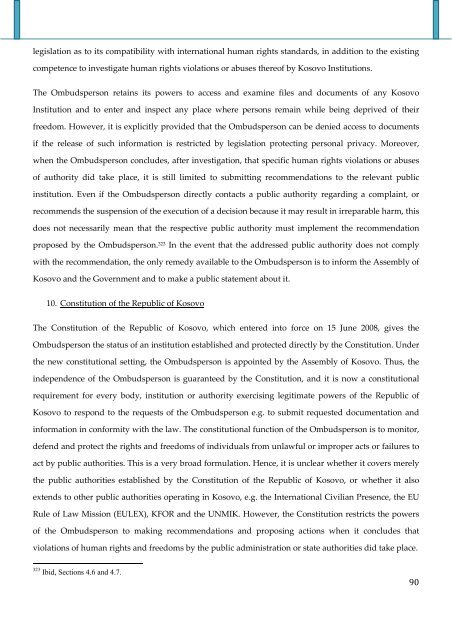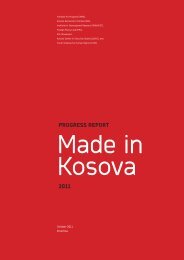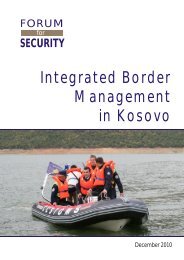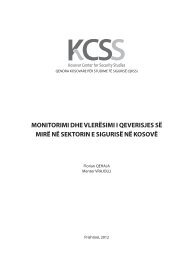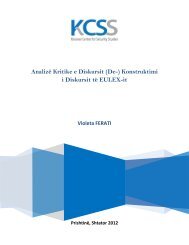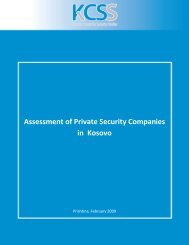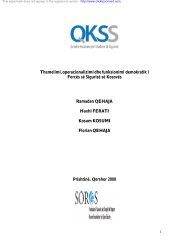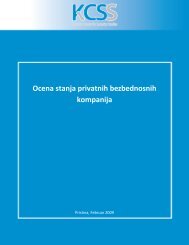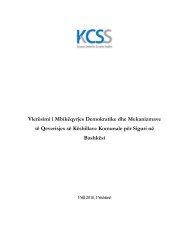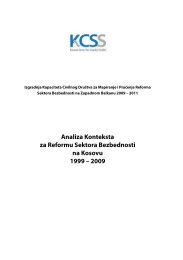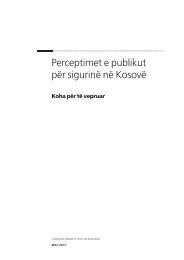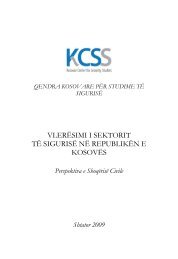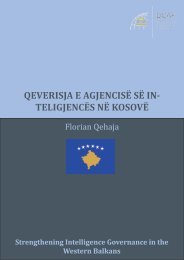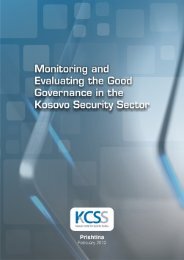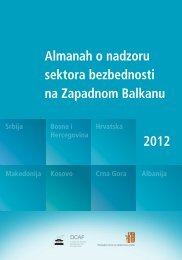Indpendent Agencies Report - Alb, Ser, Eng.pdf - QKSS
Indpendent Agencies Report - Alb, Ser, Eng.pdf - QKSS
Indpendent Agencies Report - Alb, Ser, Eng.pdf - QKSS
You also want an ePaper? Increase the reach of your titles
YUMPU automatically turns print PDFs into web optimized ePapers that Google loves.
legislation as to its compatibility with international human rights standards, in addition to the existing<br />
competence to investigate human rights violations or abuses thereof by Kosovo Institutions.<br />
The Ombudsperson retains its powers to access and examine files and documents of any Kosovo<br />
Institution and to enter and inspect any place where persons remain while being deprived of their<br />
freedom. However, it is explicitly provided that the Ombudsperson can be denied access to documents<br />
if the release of such information is restricted by legislation protecting personal privacy. Moreover,<br />
when the Ombudsperson concludes, after investigation, that specific human rights violations or abuses<br />
of authority did take place, it is still limited to submitting recommendations to the relevant public<br />
institution. Even if the Ombudsperson directly contacts a public authority regarding a complaint, or<br />
recommends the suspension of the execution of a decision because it may result in irreparable harm, this<br />
does not necessarily mean that the respective public authority must implement the recommendation<br />
proposed by the Ombudsperson. 323 In the event that the addressed public authority does not comply<br />
with the recommendation, the only remedy available to the Ombudsperson is to inform the Assembly of<br />
Kosovo and the Government and to make a public statement about it.<br />
10. Constitution of the Republic of Kosovo<br />
The Constitution of the Republic of Kosovo, which entered into force on 15 June 2008, gives the<br />
Ombudsperson the status of an institution established and protected directly by the Constitution. Under<br />
the new constitutional setting, the Ombudsperson is appointed by the Assembly of Kosovo. Thus, the<br />
independence of the Ombudsperson is guaranteed by the Constitution, and it is now a constitutional<br />
requirement for every body, institution or authority exercising legitimate powers of the Republic of<br />
Kosovo to respond to the requests of the Ombudsperson e.g. to submit requested documentation and<br />
information in conformity with the law. The constitutional function of the Ombudsperson is to monitor,<br />
defend and protect the rights and freedoms of individuals from unlawful or improper acts or failures to<br />
act by public authorities. This is a very broad formulation. Hence, it is unclear whether it covers merely<br />
the public authorities established by the Constitution of the Republic of Kosovo, or whether it also<br />
extends to other public authorities operating in Kosovo, e.g. the International Civilian Presence, the EU<br />
Rule of Law Mission (EULEX), KFOR and the UNMIK. However, the Constitution restricts the powers<br />
of the Ombudsperson to making recommendations and proposing actions when it concludes that<br />
violations of human rights and freedoms by the public administration or state authorities did take place.<br />
323 Ibid, Sections 4.6 and 4.7.<br />
90


